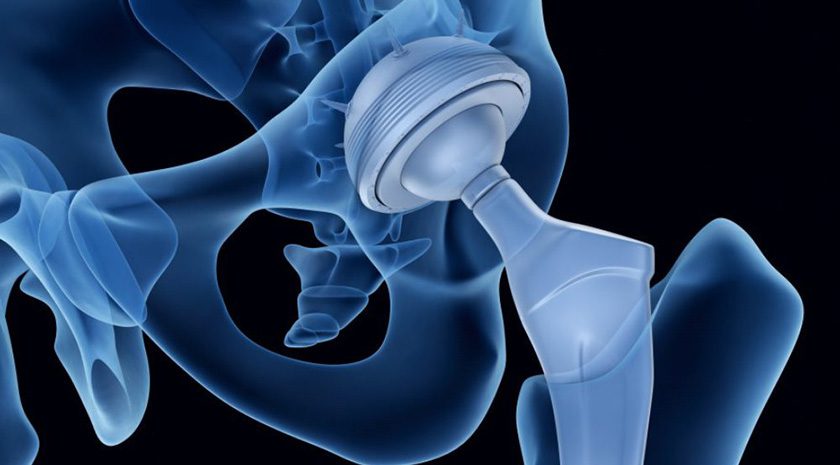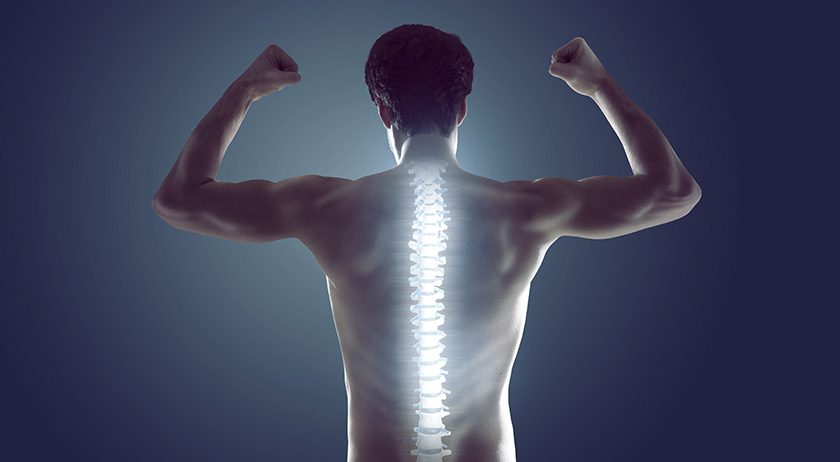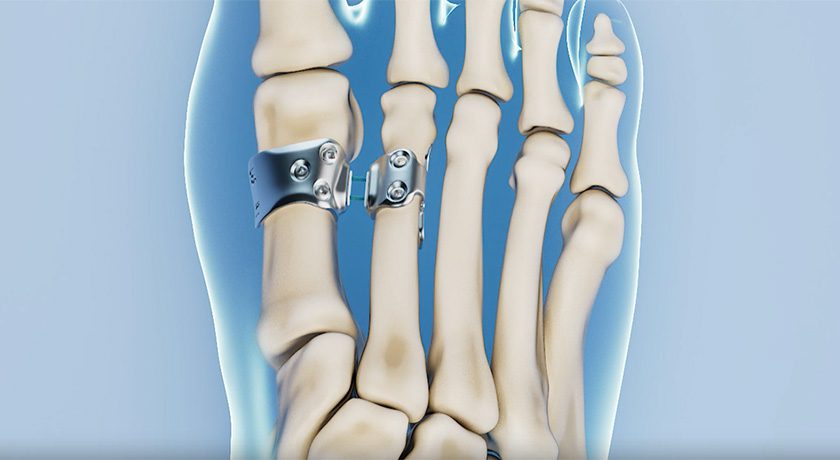

 Copy to clipboard
Copy to clipboard 
Funding activity in 1H19 spanned all market segments of the orthopedic industry fairly evenly. We tracked 19 announcements, with spine representing five of those; joint replacement, trauma, sports medicine and orthobiologics each representing three and digital health/robotics representing two.
Genesis Innovation Group was involved in funding three companies—Embody, HAPPE Spine and Magnesium Development—in the half through their cultivate(MD) fund. cultivate(MD) invests in early-stage healthcare companies and focuses especially on medical device and orthopedic technologies that have demonstrated evidence of effectiveness, said Genesis CEO Rob Ball.
Genesis fills a void at the Series A level for orthopedic companies due to the scarcity of venture capital in the market. Ball said, “Early stage medical devices are really hard. The regulatory risk is higher than many investors are interested in dealing with. There are a lot of problems to solve, but there are a lot of technologies becoming available. Our criteria are that there’s a clear and interesting problem, and scientific evidence that shows an entrepreneur, surgeon or scientist knows how to solve that problem. What’s different about Genesis is at that point, we’re willing to get really engaged operationally if we believe in the strategy. We can invest at an earlier stage and more aggressively because we’re so involved and tend to know the businesses very well.”
Asked where future investment opportunities lie, he said, “I think you have to look at the market as hip and knee, spine, and then everything else. There will be a dramatic number of patients who come into the market in the next five to 10 years. How are we going to pay for them? There’s no question there’s going to have to be innovation in the hip and knee space, in the way those products are delivered and the way the patients perceive the care event. Is that going to come because we have new implants and instruments, or because of other dynamics around the episode of care? My intuition tells me there’s more about the dynamics about the episode where you can find efficiencies and opportunities.”
For now, though, we’ve found that much of the funding surrounds new technology. The list below recaps the 1H19 announcements and notes the amount of capital, when available, its intended use and the investor.
Alphatec secured an additional $30 million in secured debt financing from Squadron Capital, adding to the $35 million provided in 4Q18. Proceeds will support the company as it seeks to scale up to $200 million in annual revenue by 2022. Squadron Capital serves the orthopedic industry with capital and also with manufacturing resources in four plants located in Alabama, Connecticut, Florida and North Carolina, offering a hybrid support model of integrated product financing and manufacturing to OEM customers.
ApiFix completed a Series B equity financing. The company is pursuing 2019 FDA clearance and subsequent U.S. launch of MID-C for the treatment of scoliosis in young patients. Minimally Invasive Deformity Correction (MID-C) is a posterior dynamic deformity correction system that supports curve correction while retaining spine flexibility. Palm Tree IV, a new U.S.-based investor, led the round with participation from existing shareholders.
Catalyst OrthoScience raised $12.7 million in an oversubscribed Series C-1 financing. Funds will support Catalyst’s plans for rapid growth, including increased inventory, expanded distribution and new product development. The financing round was led by River Cities Capital Funds.
Embody received $3.6 million led by the cultivate(MD) Capital Fund II. The capital will support pre-launch and pre-commercial activities for the Tapestry collagen-based microfiber implant, used in Achilles tendons and rotator cuffs.
Fusion Robotics closed a financing round for an undisclosed sum. Proceeds will be used to prepare the company’s spinal robotics platform for regulatory clearance and future commercialization. Fusion’s platform combines robotics and localization technologies using 3D and 2D imaging techniques along with standard navigation methods. Lead investors were Alex Lukianov of Lukpartners, LLC and Kevin Foley, M.D.
Graftys completed a €4.1 million (~US $4.6 million) funding round. Graftys markets Graftys QuickSet calcium phosphate cement and Graftys HBS injectable calcium phosphate bone graft substitute through distribution partnerships in over 25 countries. Proceeds will support global expansion by building new commercial/business development, clinical/regulatory and production capabilities in Belgium; reinforcing cement bulk production and creating a design unit in France; developing current markets such as Europe and the U.S.; and entering markets where Graftys has no current presence, such as Asia. Further, the company intends to develop new versions of existing products and new products with enhanced regenerative properties.
HAPPE Spine received a second round of financing, again with participation from Genesis Innovation Group with investments from cultivate(MD) Capital Funds I and II. The company is developing a material technology that allows PEEK to be both porous and bioactive, osteointegrative and radiolucent. HAPPE Spine plans to submit a cervical implant for FDA clearance during 2019.
Hyalex Orthopaedics raised additional funding in expansion of its Series A, increasing from $16 million to $33 million. The company is developing HYALEX synthetic polymer that is designed to mimic hyaline cartilage. The Series A was originally funded in 2017. In the increase, new investors Strategic Healthcare Investment Partners and DSM Venturing (venture arm of Royal DSM) joined existing investors Canaan, Osage University Partners and Johnson & Johnson Innovation – JJDC Inc.
InGeneron extended its Series D financing by up to $23 million, totaling up to $43 million to be invested in tranches linked to development progress. Funds will support a pivotal study, now enrolling, of cell therapy in rotator cuff tendinopathy using its autologous point-of-care cell therapy portfolio.
Intrinsic Therapeutics completed a $52 million Series Growth equity financing. Proceeds will support U.S. commercialization of the Barricaid anular closure device, which is used after discectomy to treat herniated discs. In all, the company has raised ~$219 million in over 10 rounds of funding to date. Questa Capital led this funding round, with participation from existing investors New Enterprise Associates, Greenspring Associates, Quadrille and Delos Capital. The company received FDA Premarket Approval for Barricaid in 1Q19.
Magnesium Development (MDC) received an investment from the cultivate(MD) Capital Fund II. MDC is developing a resorbable magnesium alloy technology that has the same mechanical strength as 316L stainless steel and application in numerous orthopedic implantable devices. MDC will use it to produce interference screws for anterior cruciate ligament repair, sports medicine anchors, plates, screws and wires for foot and ankle procedures, as well as trauma applications. In 2016, Genesis Innovation Group and Start Garden’s venture fund led a $1 million seed round for MDC.
Medacta, a Swiss orthopedics company with 2018 total revenue of €273 million (US $306.3 million), announced its intention to launch an initial public offering and list shares on SIX Swiss Exchange under the ticker symbol MOVE. On April 4, 2019 they successfully priced the IPO at CHF 96 (US $96.1) per share. Credit Suisse and Morgan Stanley were Joint Global Coordinators for the transaction. JP Morgan, UBS Investment Bank and Rothschild & Co. were also involved in the IPO.
Panther Orthopedics closed a Series B financing, led by Medeon Biodesign, and has expanded clinical use of its PUMA dynamic fixation system. PUMA obtained FDA 510(k) clearance in early 2018 for indications of syndesmosis fixation, hallux valgus reconstruction and tarsometatarsal fixation, and was commercially launched in the U.S. later that year. With additional financing backing, Panther Orthopedics can now continue to expand its clinical and commercial operations.Medeon Biodesign, an incubator group based in Taiwan, develops medical devices for minimally invasive procedures across a range of specialties, including orthopaedics. As the lead Series B investor, Medeon will provide resources such as funding, development expertise, manufacturing capabilities, etc. to accelerate Panther’s development.
OSSIO closed on $22 million in equity financings that will support commercialization of the OSSIOfiber Bone Pin Family. Funds will support talent acquisition, commercialization, new product development and operational expansion. The company has raised $35 million to date; this round was led by venture capital firm OCV Partners and existing investors Ortho Vision and Secocha Ventures.
Osso VR, developer of a virtual reality surgical training and assessment platform, received $0.2 million from the National Science Foundation. Funds will support research and development to advance the product with automation and artificial intelligence technology. Osso VR is currently focused on training for orthopedic and spine procedures, but will also expand to other specialties.
Rejoint received a €3 million (~US $3.4 million) grant from the EU’s Horizon 2020 SME Innovation and Research Program as a recipient of the Fast Track to Innovation award. Funds will support YourKnee total knee replacement commercialization.
Royal Biologics received funding from Granite Creek Capital Partners to support employee onboarding, operational growth, product development and acquisitions. Royal’s portfolio includes the Maxx-Cell bone marrow Extraction Device, Amnio-Maxx amniotic fluid liquid and patch allograft, Maxx-Fuse DBM and SureChip Cancellous Bone.
Trice Medical closed a $18.3 million Series C Extension financing round. Proceeds will support worldwide commercialization of mi-eye 2 and mi-ultra, as well as product development. The funding round was led by Charter Capital Partners and the Municipal Employees’ Retirement System of Michigan. Other investors in Trice include Smith & Nephew, Safeguard Scientifics, HealthQuest Capital and BioStar Ventures.
Tyber Medical was awarded a $225,000 Small Business Innovation Research grant from the National Science Foundation to conduct research and development relating to reducing orthopedic surgical site infections. Tyber Medical has developed the BioTy nanotextured implant surface. This work builds upon fundamental research into the control of bacterial growth on implant surfaces using topography alone, without antimicrobial agents or pharmaceuticals to which bacteria could form resistance.
Sources: Company press releases, websites, information in the public domain
Mike Evers is ORTHOWORLD’s Market Analyst; Julie A. Vetalice is the Editorial Assistant.
Funding activity in 1H19 spanned all market segments of the orthopedic industry fairly evenly. We tracked 19 announcements, with spine representing five of those; joint replacement, trauma, sports medicine and orthobiologics each representing three and digital health/robotics representing two.
Genesis Innovation Group was involved in funding...
Funding activity in 1H19 spanned all market segments of the orthopedic industry fairly evenly. We tracked 19 announcements, with spine representing five of those; joint replacement, trauma, sports medicine and orthobiologics each representing three and digital health/robotics representing two.
Genesis Innovation Group was involved in funding three companies—Embody, HAPPE Spine and Magnesium Development—in the half through their cultivate(MD) fund. cultivate(MD) invests in early-stage healthcare companies and focuses especially on medical device and orthopedic technologies that have demonstrated evidence of effectiveness, said Genesis CEO Rob Ball.
Genesis fills a void at the Series A level for orthopedic companies due to the scarcity of venture capital in the market. Ball said, “Early stage medical devices are really hard. The regulatory risk is higher than many investors are interested in dealing with. There are a lot of problems to solve, but there are a lot of technologies becoming available. Our criteria are that there’s a clear and interesting problem, and scientific evidence that shows an entrepreneur, surgeon or scientist knows how to solve that problem. What’s different about Genesis is at that point, we’re willing to get really engaged operationally if we believe in the strategy. We can invest at an earlier stage and more aggressively because we’re so involved and tend to know the businesses very well.”
Asked where future investment opportunities lie, he said, “I think you have to look at the market as hip and knee, spine, and then everything else. There will be a dramatic number of patients who come into the market in the next five to 10 years. How are we going to pay for them? There’s no question there’s going to have to be innovation in the hip and knee space, in the way those products are delivered and the way the patients perceive the care event. Is that going to come because we have new implants and instruments, or because of other dynamics around the episode of care? My intuition tells me there’s more about the dynamics about the episode where you can find efficiencies and opportunities.”
For now, though, we’ve found that much of the funding surrounds new technology. The list below recaps the 1H19 announcements and notes the amount of capital, when available, its intended use and the investor.
Alphatec secured an additional $30 million in secured debt financing from Squadron Capital, adding to the $35 million provided in 4Q18. Proceeds will support the company as it seeks to scale up to $200 million in annual revenue by 2022. Squadron Capital serves the orthopedic industry with capital and also with manufacturing resources in four plants located in Alabama, Connecticut, Florida and North Carolina, offering a hybrid support model of integrated product financing and manufacturing to OEM customers.
ApiFix completed a Series B equity financing. The company is pursuing 2019 FDA clearance and subsequent U.S. launch of MID-C for the treatment of scoliosis in young patients. Minimally Invasive Deformity Correction (MID-C) is a posterior dynamic deformity correction system that supports curve correction while retaining spine flexibility. Palm Tree IV, a new U.S.-based investor, led the round with participation from existing shareholders.
Catalyst OrthoScience raised $12.7 million in an oversubscribed Series C-1 financing. Funds will support Catalyst’s plans for rapid growth, including increased inventory, expanded distribution and new product development. The financing round was led by River Cities Capital Funds.
Embody received $3.6 million led by the cultivate(MD) Capital Fund II. The capital will support pre-launch and pre-commercial activities for the Tapestry collagen-based microfiber implant, used in Achilles tendons and rotator cuffs.
Fusion Robotics closed a financing round for an undisclosed sum. Proceeds will be used to prepare the company’s spinal robotics platform for regulatory clearance and future commercialization. Fusion’s platform combines robotics and localization technologies using 3D and 2D imaging techniques along with standard navigation methods. Lead investors were Alex Lukianov of Lukpartners, LLC and Kevin Foley, M.D.
Graftys completed a €4.1 million (~US $4.6 million) funding round. Graftys markets Graftys QuickSet calcium phosphate cement and Graftys HBS injectable calcium phosphate bone graft substitute through distribution partnerships in over 25 countries. Proceeds will support global expansion by building new commercial/business development, clinical/regulatory and production capabilities in Belgium; reinforcing cement bulk production and creating a design unit in France; developing current markets such as Europe and the U.S.; and entering markets where Graftys has no current presence, such as Asia. Further, the company intends to develop new versions of existing products and new products with enhanced regenerative properties.
HAPPE Spine received a second round of financing, again with participation from Genesis Innovation Group with investments from cultivate(MD) Capital Funds I and II. The company is developing a material technology that allows PEEK to be both porous and bioactive, osteointegrative and radiolucent. HAPPE Spine plans to submit a cervical implant for FDA clearance during 2019.
Hyalex Orthopaedics raised additional funding in expansion of its Series A, increasing from $16 million to $33 million. The company is developing HYALEX synthetic polymer that is designed to mimic hyaline cartilage. The Series A was originally funded in 2017. In the increase, new investors Strategic Healthcare Investment Partners and DSM Venturing (venture arm of Royal DSM) joined existing investors Canaan, Osage University Partners and Johnson & Johnson Innovation – JJDC Inc.
InGeneron extended its Series D financing by up to $23 million, totaling up to $43 million to be invested in tranches linked to development progress. Funds will support a pivotal study, now enrolling, of cell therapy in rotator cuff tendinopathy using its autologous point-of-care cell therapy portfolio.
Intrinsic Therapeutics completed a $52 million Series Growth equity financing. Proceeds will support U.S. commercialization of the Barricaid anular closure device, which is used after discectomy to treat herniated discs. In all, the company has raised ~$219 million in over 10 rounds of funding to date. Questa Capital led this funding round, with participation from existing investors New Enterprise Associates, Greenspring Associates, Quadrille and Delos Capital. The company received FDA Premarket Approval for Barricaid in 1Q19.
Magnesium Development (MDC) received an investment from the cultivate(MD) Capital Fund II. MDC is developing a resorbable magnesium alloy technology that has the same mechanical strength as 316L stainless steel and application in numerous orthopedic implantable devices. MDC will use it to produce interference screws for anterior cruciate ligament repair, sports medicine anchors, plates, screws and wires for foot and ankle procedures, as well as trauma applications. In 2016, Genesis Innovation Group and Start Garden’s venture fund led a $1 million seed round for MDC.
Medacta, a Swiss orthopedics company with 2018 total revenue of €273 million (US $306.3 million), announced its intention to launch an initial public offering and list shares on SIX Swiss Exchange under the ticker symbol MOVE. On April 4, 2019 they successfully priced the IPO at CHF 96 (US $96.1) per share. Credit Suisse and Morgan Stanley were Joint Global Coordinators for the transaction. JP Morgan, UBS Investment Bank and Rothschild & Co. were also involved in the IPO.
Panther Orthopedics closed a Series B financing, led by Medeon Biodesign, and has expanded clinical use of its PUMA dynamic fixation system. PUMA obtained FDA 510(k) clearance in early 2018 for indications of syndesmosis fixation, hallux valgus reconstruction and tarsometatarsal fixation, and was commercially launched in the U.S. later that year. With additional financing backing, Panther Orthopedics can now continue to expand its clinical and commercial operations.Medeon Biodesign, an incubator group based in Taiwan, develops medical devices for minimally invasive procedures across a range of specialties, including orthopaedics. As the lead Series B investor, Medeon will provide resources such as funding, development expertise, manufacturing capabilities, etc. to accelerate Panther’s development.
OSSIO closed on $22 million in equity financings that will support commercialization of the OSSIOfiber Bone Pin Family. Funds will support talent acquisition, commercialization, new product development and operational expansion. The company has raised $35 million to date; this round was led by venture capital firm OCV Partners and existing investors Ortho Vision and Secocha Ventures.
Osso VR, developer of a virtual reality surgical training and assessment platform, received $0.2 million from the National Science Foundation. Funds will support research and development to advance the product with automation and artificial intelligence technology. Osso VR is currently focused on training for orthopedic and spine procedures, but will also expand to other specialties.
Rejoint received a €3 million (~US $3.4 million) grant from the EU’s Horizon 2020 SME Innovation and Research Program as a recipient of the Fast Track to Innovation award. Funds will support YourKnee total knee replacement commercialization.
Royal Biologics received funding from Granite Creek Capital Partners to support employee onboarding, operational growth, product development and acquisitions. Royal’s portfolio includes the Maxx-Cell bone marrow Extraction Device, Amnio-Maxx amniotic fluid liquid and patch allograft, Maxx-Fuse DBM and SureChip Cancellous Bone.
Trice Medical closed a $18.3 million Series C Extension financing round. Proceeds will support worldwide commercialization of mi-eye 2 and mi-ultra, as well as product development. The funding round was led by Charter Capital Partners and the Municipal Employees’ Retirement System of Michigan. Other investors in Trice include Smith & Nephew, Safeguard Scientifics, HealthQuest Capital and BioStar Ventures.
Tyber Medical was awarded a $225,000 Small Business Innovation Research grant from the National Science Foundation to conduct research and development relating to reducing orthopedic surgical site infections. Tyber Medical has developed the BioTy nanotextured implant surface. This work builds upon fundamental research into the control of bacterial growth on implant surfaces using topography alone, without antimicrobial agents or pharmaceuticals to which bacteria could form resistance.
Sources: Company press releases, websites, information in the public domain
Mike Evers is ORTHOWORLD’s Market Analyst; Julie A. Vetalice is the Editorial Assistant.

You are out of free articles for this month
Subscribe as a Guest for $0 and unlock a total of 5 articles per month.
You are out of five articles for this month
Subscribe as an Executive Member for access to unlimited articles, THE ORTHOPAEDIC INDUSTRY ANNUAL REPORT and more.
JV
Julie Vetalice is ORTHOWORLD's Editorial Assistant. She has covered the orthopedic industry for over 20 years, having joined the company in 1999.







